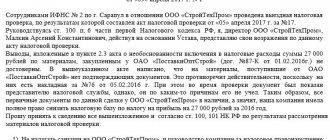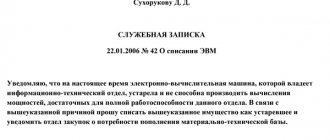Key points of the agency agreement
Usually, in accordance with this type of agreement, the agent acts on his own behalf, being, as it were, an official representative of the principal company. At the same time, the range of his rights and powers has certain restrictions, violation of which can lead to the termination of contractual relations.
If the object of the agency agreement is any inventory items, then they do not become the property of the agent at any stage of the transaction, but are transferred from the seller to the buyer without being included in the agent’s accounts.
Depending on the volume of work performed or sales made, remuneration under an agency agreement may be:
The agreement may be concluded:
- to carry out a single transaction;
- to provide a range of services;
- for a certain period of time;
- indefinitely.
All clauses of the agency agreement, including the provision of a report on the agent’s activities, must be spelled out carefully and scrupulously, since the way the main document is drawn up may affect the fulfillment of obligations under it.
It is also necessary to remember that if suddenly some friction and conflicts arise between the agent’s principal company and the agent himself, the document may acquire the status of evidence (especially important when resolving disputes in court).
Results
The agent, as a link between the principal and a third party (buyer or supplier), is responsible for re-invoicing. An agent selling on his own behalf the goods of the principal in invoices issued in the name of buyers indicates himself as a seller. Using such a document, the buyer can safely claim a VAT deduction. If the agent purchases goods or services on behalf of the principal, then when re-invoicing he must indicate information about the supplier on pages 2, 2a and 2b.
Download step-by-step instructions for re-invoicing Here.
You can find more complete information on the topic in ConsultantPlus. Full and free access to the system for 2 days.
How to write an agent report
To date, there is no unified sample agent report, so enterprises and organizations have the right to write a document in any form or according to an internal template approved in the company’s accounting policy.
You only need to ensure that the document complies with certain standards of business documentation and office work norms, in addition, it must contain certain information. For example, the report must indicate:
- date and number of its preparation;
- names of partner enterprises;
- number and date of the agency agreement, within the framework of which this document is formed;
- the period for which the contract is made.
Next, the report should contain the main part, formatted as a table. This includes:
- serial number;
- date and content of the operation;
- cost of the operation;
- the amount of expenses for the operation.
The table can be supplemented with some other columns (depending on the conditions specified in the agency agreement), for example, information about contractors, expenses incurred by the agent, documents accompanying a particular transaction, etc.
In conclusion, it is stated that the second party may object to the information provided within a certain period of time (or by a specific date).
What it is?
An invoice confirms the amount of VAT on sales upon purchase and the VAT included in it. Data from payment papers is transferred to the Sales and Purchase Books for subsequent submission of recorded VAT to the tax service.
This accounting document is presented to the customer by the seller personally or with the purchased goods or services. The invoice format was approved in Government Decree No. 1137 dated December 26, 2011. This accounting document is of two types:
- Standard.
- Advance.
Art. 169 of the Tax Code of the Russian Federation contains data on the requirements for these financial statements. Required details:
- Date, account number received upon compilation.
- TIN, address, name of the seller and customer.
- Address, name of the recipient and sender of the cargo.
- Units in which services provided or goods sold are measured, description.
- Volume of services, quantity of goods supplied.
- Currency of securities.
- Price excluding VAT per unit.
- The full cost of services provided and goods sold.
- Tax rate.
- Total tax amount.
- The full cost including VAT for services or goods provided to the customer.
- For import, the customs declaration number and the country from which the goods were imported are indicated (read about invoices for import and export here).
We talked in more detail about what an invoice is and when the document is used in this article, and why this document is needed, read here.
Nuances when preparing a report
The agent's report can be prepared either printed or handwritten, on letterhead or on a regular A4 sheet.
The main condition here is that it contains a “live” signature of a representative of the agent company (after receiving its copy, the second party must also endorse the document).
It is not necessary to certify report forms using stamps, because from 2020, commercial companies (enterprises and organizations) can use various types of stamps in their activities only when this norm is enshrined in their local regulations.
This report is always generated in two copies , one of which remains with the agent, the second is transferred to the partner organization.
This is interesting: Where to register an apartment rental agreement
Situation 1. Purchase of goods on behalf of an intermediary at the expense of the principal
The principal instructs the intermediary on his own behalf, but at the expense of the principal, to find a suitable supplier and agree on the supply of goods (works, services) for the principal.
Invoices received by the intermediary from the supplier:
- are subject to registration by the intermediary in part 2 of the journal for recording the issuance of received and issued invoices (clauses 10, 11 of the Rules for maintaining a journal for recording received and issued invoices used in VAT calculations (hereinafter referred to as the journal keeping rules), approved by Resolution N 1137 );
- are not subject to inclusion in the intermediary’s purchase book, since he does not have the right to deduct (clause “d”, clause 19 of the Rules for maintaining the purchase book (hereinafter referred to as the rules for maintaining the purchase book), approved by Resolution No. 1137);
- must be copied, and copies must be certified and transferred to the principal (clause “a”, clause 15 of the journal keeping rules);
- reissued by the intermediary in the name of the principal.
Table 1. Information indicated by the intermediary in the invoice reissued in the name of the principal








